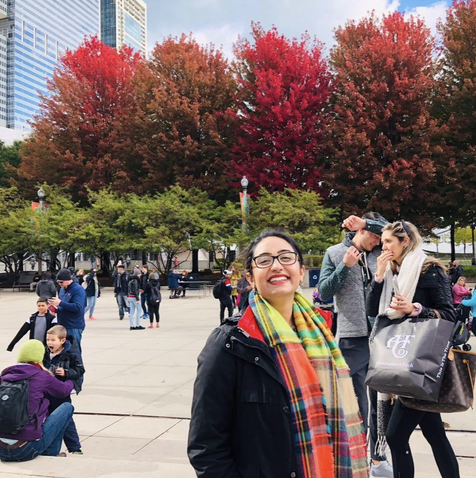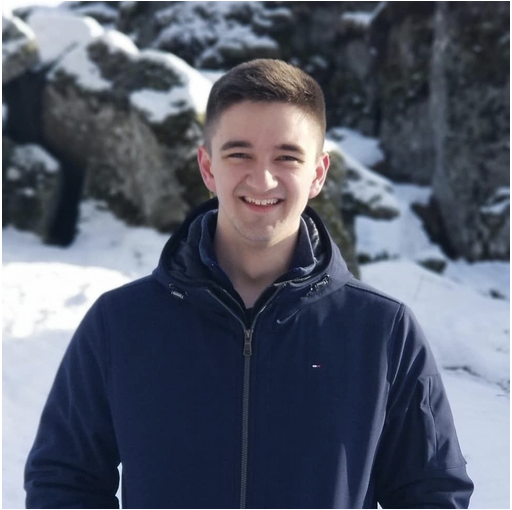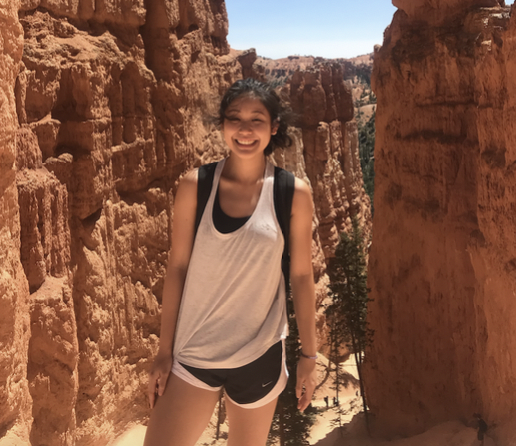Bo Li
Bo is a doctoral student in Electrical Engineering at Chongqing University. His work is focused on the integration of renewable energy and of electric vehicle fleets into the Chinese power grid.
Bo is a doctoral student in Electrical Engineering at Chongqing University. His work is focused on the integration of renewable energy and of electric vehicle fleets into the Chinese power grid.
Guangzhi is a PhD student in Energy Systems Analysis at Tsinghua University. He has bachelor’s degrees in Electrical Engineering and in Management from Tsinghua University. He has been a visiting student at the University of Bath and at the Israel Institute of Technology.
His work is focused on the role of carbon pricing and renewable energy deployment in China.
Guangzhi will be a visiting student at RAEL from October 2019- July 2020.
Current position:
Ph.D student in Electrical Engineering, Tsinghua University.
Xiaoli is a PhD student in the School of Environmental & Natural Resources, Renmin University of China
She has a range of research interests, including the Low-carbon transition pathway of China’s power sector, the job creation potential of the new green energy economy, and the role of energy storage in decarbonization in China and Europe.
She will be a visiting research student at RAEL from October 2019 — August 2020.
Dongran Liu is a doctoral student in the School of Economic and Management at North China Electric Power University. She has research interests in energy markets, optimization and risk management, and distributed energy resource planning.
At RAEL she is working on modeling the future of the Chinese electric power system using SWITCH. She is part of a partnership with European energy storage associations to examine the market opportunities and carbon benefits of the installation of a range of energy storage technologies.
She will be a visiting student in RAEL from October 2019 — August 2020.
Current position:
PhD student, North China Electric Power University
Natalie is an Energy Engineering (https://engineeringscience.
In RAEL, Natalie is currently engaged in the SWITCH China project. She works on modeling grid expansion for China, looking at how decarbonization pathways and electric vehicle grid integration will affect the future energy mix. Her topics of interest include long-term power system planning, applications of international energy policy, projecting energy demand, and storage technology adoption.
Meet the Laos Energy Modeling and Policy Analysis (Undergraduate!) Team:
The focus of this inter-disciplinary and inter-university research group is to develop sustainable energy, water, and land-use scenarios for Laos, and to work with local stake-holders on the costs and benefits for communities, the nation, and the regional commerce in energy, water, food, timber and other commodities.
Aaditee Kudrimoti
 Bio: Aaditee is a fourth-year at UC Berkeley studying political science and public policy with a concentration in energy, development, and international relations. Aaditeeis originally from Tucson, Arizona, where she began to develop an interest in international environmental affairs. At UC Berkeley, Aaditeeis working on projects in the political economy of Chinese development finance, rural electrification, and collective action. Aaditeehas become especially interested in how the rise of renewable technology is influencing energy diplomacy around the world. She hopes to pursue a career in academia and public policy and work on governance tools to build the bargaining capacity of LDCs against MNCs, foreign state-owned enterprises, etc. on the subject of FDI and other types of investment. She sees SWITCH-Laos as having the potential to serve as a critical tool in assisting the increase of the Lao people’s bargaining power over FDI in the energy sector and thus their autonomy in determining their own economic development. Outside school, Aaditee’s interests include dance, food journalism, and cooking.
Bio: Aaditee is a fourth-year at UC Berkeley studying political science and public policy with a concentration in energy, development, and international relations. Aaditeeis originally from Tucson, Arizona, where she began to develop an interest in international environmental affairs. At UC Berkeley, Aaditeeis working on projects in the political economy of Chinese development finance, rural electrification, and collective action. Aaditeehas become especially interested in how the rise of renewable technology is influencing energy diplomacy around the world. She hopes to pursue a career in academia and public policy and work on governance tools to build the bargaining capacity of LDCs against MNCs, foreign state-owned enterprises, etc. on the subject of FDI and other types of investment. She sees SWITCH-Laos as having the potential to serve as a critical tool in assisting the increase of the Lao people’s bargaining power over FDI in the energy sector and thus their autonomy in determining their own economic development. Outside school, Aaditee’s interests include dance, food journalism, and cooking.
Alex Lathem
 Bio: Alex Lathem is a third-year undergraduate at Yale University. He is a physics major with several years of experience using programming languages, including Python SQL, C, and Bash, to analyze scientific data. Previous research projects Alex has worked on include astrometry of near-Earth asteroids and the creation of a Hubble curve through the analysis of Type Ia supernovae. Alex spent the summer of 2019 working on the SWITCH model for China, and is very excited to apply the skills he learned there to a version for Laos. Outside of research, Alex is also interested in music, video game design, linguistics, and history.
Bio: Alex Lathem is a third-year undergraduate at Yale University. He is a physics major with several years of experience using programming languages, including Python SQL, C, and Bash, to analyze scientific data. Previous research projects Alex has worked on include astrometry of near-Earth asteroids and the creation of a Hubble curve through the analysis of Type Ia supernovae. Alex spent the summer of 2019 working on the SWITCH model for China, and is very excited to apply the skills he learned there to a version for Laos. Outside of research, Alex is also interested in music, video game design, linguistics, and history.
Ashley Yip
 Bio: Ashley is a second-year undergraduate studying environmental science with an emphasis in global politics. She moved to New Mexico, where she developed an interest in environmental affairs. At UC Berkeley, she is involved in a pre-law association that helped her explore her interest in law and how she may integrate that into environmentalism. Off campus, she is working on a sex education reform project in Singapore with the Ministry of Education. She is constantly exploring the intersection between policy, education, and the environment. She hopes to return home to Singapore and pursue a career in international environmental policy or law within Southeast Asia. Ashley chose to work on SWITCH-Laos not only because greening ASEAN’s economic development is essential to tackling climate change, but also because she is familiar with the demographic. She has done research in regards to both urban and rural agriculture in Asia and the US, and led research for environmental management in business operations. Outside of school, her interests include climbing, hiking, piano, and camper vans.
Bio: Ashley is a second-year undergraduate studying environmental science with an emphasis in global politics. She moved to New Mexico, where she developed an interest in environmental affairs. At UC Berkeley, she is involved in a pre-law association that helped her explore her interest in law and how she may integrate that into environmentalism. Off campus, she is working on a sex education reform project in Singapore with the Ministry of Education. She is constantly exploring the intersection between policy, education, and the environment. She hopes to return home to Singapore and pursue a career in international environmental policy or law within Southeast Asia. Ashley chose to work on SWITCH-Laos not only because greening ASEAN’s economic development is essential to tackling climate change, but also because she is familiar with the demographic. She has done research in regards to both urban and rural agriculture in Asia and the US, and led research for environmental management in business operations. Outside of school, her interests include climbing, hiking, piano, and camper vans.
Rachel Ng
Bio: Rachel is a second-year Environmental Science and Data Science major. A Singapore-native, Rachel describes that SWITCH-Laos extremely important to her because it is an important step towards the energy security of Southeast Asia. She believes that the sustainable electrification of Southeast Asia is key to regional grid stability and energy trade. She is pursuing SWITCH-Laos as critical in leading the way towards sustainable electrification. Rachel is interested in the intersectionality between climate change and community, exploring how community based issues caused by climate change can be alleviated through data. Furthermore, Rachel is currently concerned about equal access to education and volunteers weekly as a mentor to elementary school students. In the future, she hopes to return to Singapore and guide environmental change through creating an ecosystem of sustainable communities and businesses. Her hobbies include dance, rock climbing and water sports.
We explore the operations, balancing requirements, and costs of the Western Electricity Coordinating Council power system under a stringent greenhouse gas emission reduction target. We include sensitivities for technology costs and availability, fuel prices and emissions, and demand profile. Meeting an emissions target of 85% below 1990 levels is feasible across a range of assumptions, but the cost of achieving the goal and the technology mix are uncertain. Deployment of solar photovoltaics is the main driver of storage deployment: the diurnal periodicity of solar energy availability results in opportunities for daily arbitrage that storage technologies with several hours of duration are well suited to provide. Wind output exhibits seasonal variations and requires storage with a large energy subcomponent to avoid curtailment. The combination of low-cost solar technology and advanced battery technology can provide substantial savings through 2050, greatly mitigating the cost of climate change mitigation. Policy goals for storage deployment should be based on the function storage will play on the grid and therefore incorporate both the power rating and duration of the storage system. These goals should be set as part of overall portfolio development, as system flexibility needs will vary with the grid mix.
Daniel L. Sanchez is an alumni of the Energy and Resources Group and the Renewable and Appropriate Energy Laboratory at the University of California-Berkeley. He is interested in quantitative analysis to inform public policy, focusing on bioenergy and climate policy. His current research focused design, deployment, and commercialization of bioenergy with carbon capture and sequestration (BECCS) technologies. Daniel has previously held positions with the Advanced Research Projects Agency-Energy (ARPA‑E), Green for All, and the California Public Utilities Commission. He holds an M.S. in Energy and Resources and a B.S.E. in Chemical and Biomolecular Engineering from the University of Pennsylvania.
Dan has been a post-doctoral fellow at the Carnegie Institution at Stanford University, and is currently a AAAS Fellow in Washington, DC. He is interested in the deployment and commercialization of technologies that significantly reduce energy-related CO2 emissions or remove CO2 from the atmosphere. Daniel’s work and engagement spans the academic, nongovernmental, and governmental sectors. He recently completed a postdoctoral research fellowship with the Carnegie Institution for Science working with Drs. Chris Field and Katharine Mach. Daniel has previously held positions with the Advanced Research Projects Agency-Energy (ARPA‑E), Green for All, and the California Public Utilities Commission.
He holds a Ph.D. and M.S. from the Energy and Resources Group at the University of California-Berkeley, and a B.S.E. in Chemical and Biomolecular Engineering from the University of Pennsylvania.
Publications
Links
Patricia graduated as an industrial and electrical engineer in 2012 from Pontificia Universidad Católica de Chile (PUC). During her undergraduate studies she worked as a Linear Algebra teaching assistant for three years, performed research in Dr. Daniel Kammen’s Renewable and Appropriate Energy Laboratory (RAEL) at UC Berkeley working on the SWITCH model for the US. She also worked (funded by CONICYT) on solar energy research at the University of Arizona (undergrad thesis). Once she graduated she worked as a Linear Algebra lecturer at PUC. Later on, for over a year and a half she worked as a research assistant at UC Berkeley and at the Natural Resources Defense Council (performing SWITCH-Chile research). Her topics of interest are how to highly integrate renewable energy in the grid, long-term power system planning, stochastic load dispatch models, energy policy, and energy economics.
I am working on my MS/PhD at the Energy and Resources Group (ERG). My research is in low-carbon (low-impact) energy systems and economic development, modeling high renewable energy future scenarios, and deploying sMArt Grid (high-tech/low-cost) pilots in the rising south. I’ve worked in Chiapas (Mexico) developing regional microcredit schemes and river survey studies, designed and built ‘low-tech/high- impact’ water distribution systems for small communities in Uganda and Honduras, have used GIS models and InVest (Integrated Valuation of Environmental services and Tradeoffs) to study the hydrology of the Linthipe Basin (Malawi), and investigated linkages between hydrological variability, energy use, and agriculture in Punjab and Telangana (India).
My current work is in Nicaragua developing and building scenarios for the SWITCH model – optimizing the penetration of renewable energy into the country’s electric power system, and deploying the country’s first micro-scale demand response program (DR) through the use of ‘flexible energy toolkits’.
You can visit my website: dleonb.com, LinkedIn, and Instagram accounts
You must be logged in to post a comment.